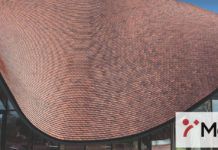
‘Spec busting’ is the practice of substituting construction products that have originally been specified by the architect, designer or client. In many cases, a specified brand of product is changed for what is perceived to be an equivalent and is usually done for reasons of cost, availability or preference. However, with increasingly stringent roofing and environmental standards, highly engineered products and the introduction of lengthy guarantees for full roof systems, this practice is fraught with hidden risks.
Levels of product substitution vary according to the sector, the type of contract that the work is procured under and how involved the supplier has been in the specification process. Some building contracts don’t allow the substitution of materials without permission, unless there is an equal or approved clause – this is commonly seen with local authority specifications.
However, ‘spec busting’ is still a concern across the whole construction industry and in the 2017 NBS Specification Report, 57% of specifiers who had problems with specifications said that it was down to materials being substituted. The specification is an important means of achieving design intent on a project and product substitution can jeopardise it.
Pressure to drive down costs
In the roofing sector, the increasing pressure on contractors to drive down costs and ongoing challenges with product lead times, means that product substitution is a particular issue at the moment. For example, if one type of tile has a long lead time, or is more expensive, then the contractor may choose to replace it with a similar product. In some cases this may be unavoidable, yet it is important to be aware that products which appear to be equal may not be and there can be significant differences in quality, guarantees, weather resistance and environmental performance.
The introduction of the revised BS 5534, together with the proposed new dry fix standard, means that roofing specification has become increasingly complex. Manufacturers, like ourselves, are working with specifiers at the early design stages to make sure the entire pitched roof system is fully compliant with British Standards.
For commercial reasons, it may seem cheaper in the short term to replace a product but this can have a significant impact and be costly in the long term. For example, if a full roof system from one manufacturer is specified and just one element is replaced, say the roof tile or the underlay, then it won’t benefit from the guarantee, which in our case is 15 years – this is clearly a costly substitution.
There is also a concern that any substituted roof tiles and system may not be compatible – ours have been designed and tested to work together and ensure performance, this is not always the case with a mix of materials from different manufacturers. There could also be an issue that the roof tiles and systems are not suitable for the location and type of roof.
Environmental performance is another significant factor, particularly when it comes to the issue of responsible sourcing. A product may be substituted with another A+ rated tile for instance, but they may not both have responsible sourcing certification. This can have an impact if the client is looking to achieve a BREEAM or Home Quality Mark rating.
Our products have both BES 6001 responsible sourcing accreditation and an A+ rating in the BRE Green Guide, which provides additional BREEAM points. Therefore, if a designer has allowed for this, a simple product switch could impact on the sustainability performance of the building.
New dry fix British Standard
Product quality and durability is also a consideration. This is particularly significant with dry fix systems and the proposed introduction of the new British Standard. Significant inconsistencies have been found between the quality of components in dry fix systems – in some cases even leading to product failure. So, if a particular brand of dry fix product has been specified, then simply swapping for a different one may have implications on the performance of the roof.
There will always be some instances where contractors need to substitute products and the processes they need to follow will depend on the type of contract they are working on. This needs to be done with full awareness of any potential differences between the products.
As a general rule of thumb, the roofing contractor would first of all need to ensure the products are suitable for the design, shape and pitch of the roof and perform as designed by the architect or project surveyor. They would also need to ensure the system conforms with BS 5534 and the upcoming dry fix British Standard – BS 8612. In addition, the roofing contractor should ensure they have a bespoke fixing specification from the manufacturer and all the products in the system suit both the roof and the location of the property or site.
If a contractor does need to substitute materials, it is always best to find out if the client chose that product for a particular reason – e.g. performance, environmental criteria, guarantee etc. Finally, in tenders and quotes, make it clear that costings are being provided for an alternative product.
If you have any further questions about roofing specifications or pitched roof systems, contact our technical team on 01283 722588.



